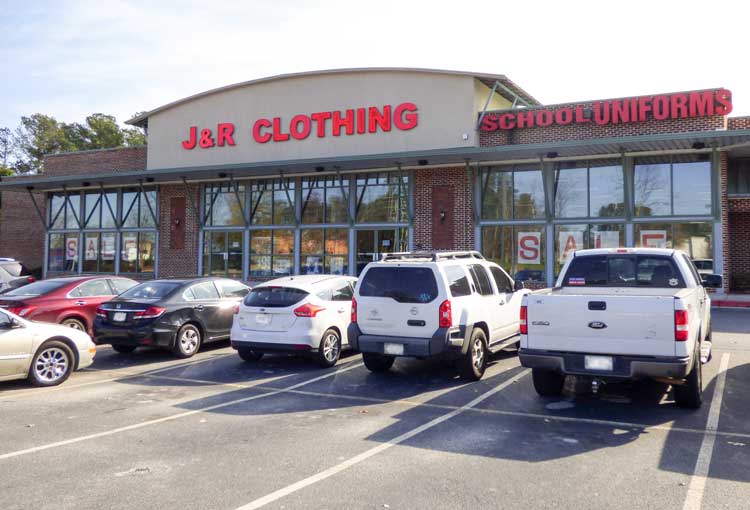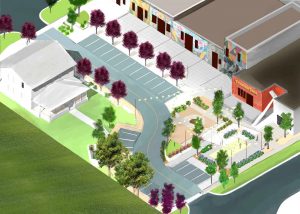Lidl cancellation leaves J & R Clothing owner holding the bag; German-based food merchant scales back U.S., Georgia expansion plans
German grocer Lidl has dropped its plans to build in Fayetteville. That decision means that longtime retailer J & R Clothing will be staying where it is on Ga. Highway 85 North. The local business has put on indefinite hold its plans to construct a new shopping plaza on Ga. Highway 54 west of downtown.
J & R owner Richard Dumas said he got left out to dry on Lidl’s decision not to build in Fayetteville, yet he also questioned the posture of the Fayetteville Planning and Zoning Commission and its often-repeated concerns about Lidl’s prototype glass wall fronting the highway, designed to allow an abundance of natural sunlight into the building.
The Lidl project came to a halt on Dec. 13 when Dumas said Lidl informed his real estate agent that they would no longer be locating at the Fayetteville site.
A similar pull-back happened in September in Gainesville in north Georgia, according to news reports. There, the European supermarket giant withdrew a rezoning request for a 36,000 square-foot store, catching officials by surprise. Lidl this past fall put the brakes on an ambitious expansion into the U.S. market.
In Fayetteville, Dumas had progressed significantly in the planning process to relocate his business by constructing a new shopping center on Hwy. 54 just west of Grady Avenue.
Dumas on Dec. 14 said the decision by Lidl cost him $97,000 in lost retail income from his Hwy. 85 North tenants since those tenants began closing their stores several months ago in anticipation of the Lidl project.
Lidl announced in late October that it was scaling back its planned expansion in Georgia, according to media reports. It is not known if a part of that reduction in expansion included the Fayetteville store, said Dumas.
Yet Dumas said the one and a half-year process to bring Lidl to his Hwy. 85 property was supposed to come with a closing date on Sept. 30, though Lidl in October asked for a three-month extension on closing, while adding that everything was fine with the project, Dumas said.
It was shortly thereafter that Dumas said he was told that Lidl was reevaluating the project, adding that he heard from Lidl through his real estate agent on Dec. 13. The word was that Lidl would not be locating on the property.
“(Lidl) put us in a difficult position. I got left out to dry,” Dumas said. “Besides, they strung us along for a year and a half. At what point they knew they weren’t going through with it, we don’t know.”
Also on Dumas’ mind was the main issue with the Lidl proposal at the planning commission, one dealing with the large glass wall which is part of the Lidl prototype, and one with which planning commissioners on several occasions, and as recently as Sept. 26, voiced concern.
“I can’t help but think that if (planning commissioners) didn’t give them such a hard time with the prototype and glass elevations that it would have made a difference and the project would have gone through,” Dumas said. “I’m not accusing them but, in my opinion, things would have gone faster and smoother.”
As for his shopping center project on Hwy. 54 West, that is on indefinite hold, and J & R Clothing will remain open right where it is, Dumas said.
Dumas said he hopes he can recoup Lidl’s earnest money, which totals the amount he lost in rental income.
Lidl in April first announced plans to construct a 36,000 sq. ft. grocery store at the current site of J & R Clothing, with Dumas planning to construct a 22,000 sq. ft. shopping center on Hwy. 54 West.
Lidl received rezoning and annexation approval from the Fayetteville Planning and Zoning Commission on May 25. Lidl requested no variances or special exceptions.
It was at the Sept. 26 commission meeting that Lidl proposed development plans. Some on the commission questioned the company’s use of significant glass walls on the proposal. Lidl representatives in past meetings explained the company’s preference for glass to allow natural sunlight in their buildings.













Leave a Comment
You must be logged in to post a comment.